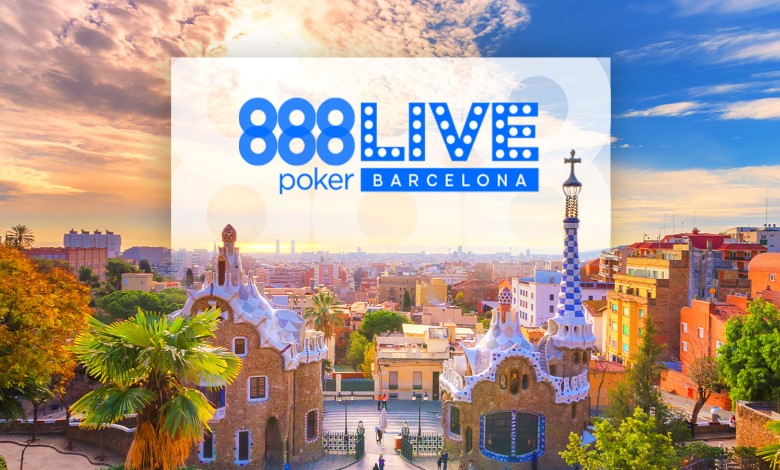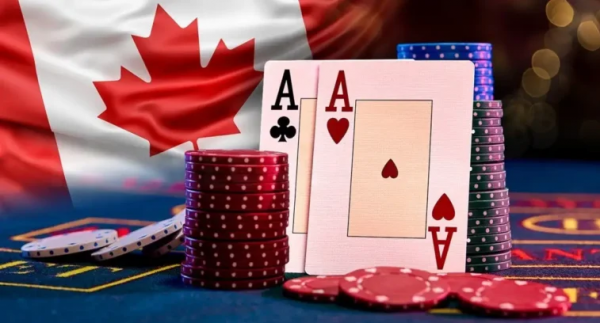Lance Bradley is one of the most well-known members of the poker media corps. A two-time American Poker Award winner, he has produced a memorable body of work over his decade-plus in the business. In the coming days, he’s set to release his first full-length book, entitled The Pursuit of Poker Success: Learn from 50 of the World’s Best Poker Players. Just ahead of the book’s much anticipated publication, I spoke with him to find out more about how the project came together, the challenges of balancing such a hefty project with his full-time work responsibilities, and what the overall book writing experience was like. With thanks to Lance for this interview, I hope you all enjoy.
What was it that first gave you the idea to write a poker book?
Well, I’ve wanted to write a book since I was in the second grade. Once I moved into the poker media side, I started looking for an opportunity to write a poker book. As I mentioned in the interview we did almost two years ago, I was really close to signing a book deal before Black Friday wiped it all away. Dan Addelman from D&B Poker saw that interview and reached out to me, letting me know that if I had any ideas for a poker book they’d be happy to hear them. About six months later, I emailed him back with an idea that I thought would work and that conversation became The Pursuit of Poker Success.
Excited to announce I’ve signed with @DBPoker1 to write a book about some of the most successful poker players ever. Look for it May 2018. pic.twitter.com/oNab4VjRCT
— Lance Bradley (@Lance_Bradley) April 20, 2017
How did you decide what the book was going to be about?
One of the most fascinating things about poker at the highest level is the various ways in which people get there. There’s no one clear path. That’s what I wanted to write about; the ways in which some of the game’s most elite players have become successful.
The initial concept is actually quite close to the final product. I wanted to talk to as many poker players about “success” and then write a chapter about each conversation. So it all started with a question I asked on Twitter:
QOTD: How do you define “successful poker player”?
— Lance Bradley (@Lance_Bradley) April 18, 2017
That question became the basis for the first question I asked every interviewee for this book: How do you define success?
Describe the process from the moment you first conceptualized the book. Could give us a timeline from that moment until now, when the book is about to be released?
I started sketching out the concept in December 2016, pitched the idea in February 2017 and signed with D&B in March 2017 to write the book. I started putting the research together almost immediately. Interviewing players started in earnest in August and I wrote each chapter about a week after the interview. I’d interview the player, then sketch out the chapter and then write it. I finished interviews in early January and completed the book mid-January.
Seeing a PDF copy of my book for the first time has me feeling like … pic.twitter.com/Rn3RKtOCUO
— Lance Bradley (@Lance_Bradley) April 6, 2018
The book is entitled “The Pursuit of Poker Success: Learn from 50 of the World’s Best Poker Players.” How and why did you settle on the number 50, specifically?
Looking back now, I probably could have done two books of 25, just because the material I was getting from the interviews was so good. I initially chose 50 to make sure I had a wide spectrum of experiences, backgrounds, etc. I wanted to include players from cash games and tournaments, online and live, etc. It was A LOT of interviews to work my way through.
Some players included among the 50 are “no-brainers,” but generally speaking, what were your criteria for deciding which players to pick?
My original list of targets had 97 players on it. I then asked some of my colleagues to read the list and tell me who was missing and who shouldn’t be included. Then I had to decide who to contact first, so I ranked the players from 1-97 based on a bunch of criteria and started working my way through the list. I only had one player who decided to not do the interview – everybody else was super accommodating.
I wanted players from different backgrounds, that grew up in different parts of the world so that we could explore how that impacted their path to success. I wanted to make sure I had players who were cash game crushers, some who dominated online tournaments, players who have won on the live tournament scene and then players who managed to move around a bunch in poker and are considered successful in all areas. I think the 50 are a good reflection of that.
Approximately how long did each player interview take? Did the entirety of each conversation make it into the book or was there a good amount of “chaff” left on the cutting room floor?
Most of the interviews were around an hour long. That’s a lot of material to work with and that was done on purpose. I had to leave a bunch of stuff out. This isn’t just a Q&A book, so I couldn’t just print the stuff verbatim from start to finish. I have a lot of other material from all 50 interviews.
Were there any interviews among the 50 that stood out as particularly enjoyable to you on a personal level to conduct and then work into the book?
Some interviews were undoubtedly better than others, but the project itself was such a joy for me that I walked away from nearly every interview genuinely excited about the conversation I’d just had. I think I was about 6 or 7 interviews into the book and I told my wife, ‘that was the best interview so far, that chapter is going to be great’ and she looked at me and said ‘that’s about the fifth time you’ve said that’. And it was true. I love interviewing poker players and love writing about poker players, but that time in between is when my mind races the most with excitement and I’m shown what’s possible for the writing by what the interview produces.
With over a decade of experience in poker media, I’m guessing that you had already probably interviewed most, if not all, of the 50 players featured in the book. Were there any first-time interviewees for you during this project?
Just two. I’d never interviewed Adrian Mateos or Ben Tollerene before and those were a lot of fun to do. That being said, I’d interviewed the other 48 players in varying degrees. Some were done just after they’d won a bracelet and so it was part of a scrum of writers asking questions. Others, like Daniel Negreanu or Phil Hellmuth or Jason Mercier, I’ve interviewed dozens of times. I learned a lot from each interview but the players who don’t normally do interviews or maybe have stayed out of the media spotlight during their careers gave me a unique opportunity that I’m really grateful for.
Your prior relationships with the 50 players notwithstanding, I’m sure you must have learned a lot of new interesting things/factoids about a number of them. What would you say were some of the biggest surprises?
Oh wow, I could list one for every player I think. Some that stand out though? Learning that Mateos decided at 14 he was going to be a professional poker player and laid out a plan for how he was going to do it was inspiring. At an age when most kids are trying to figure out what they want to study, Mateos just knew he was going to be what he is today and he stayed focused the entire time on making that reality. Olivier Busquet was very candid about some of the things that have prevented him from being even more successful in poker and that was something I didn’t expect.
One thing I think readers will take away from the book once they’ve read it all the way through, is that nobody, myself included, has given Isaac Haxton enough credit for how important he’s been to poker.
Of course, you’re also the President and Editor in Chief of PocketFives. I imagine it can be quite challenging to balance the daily workload with the time it takes to prepare and conduct 50 interviews and then do all the writing for the book. Plus, you’re a husband and father, too. How did you devise your approach to giving each commitment its due attention? What strategies worked and did you experience any significant bumps along the road to the finish line?
I’d love to tell you that I had devised a plan to manage my time perfectly throughout this process, but the reality is that I’m a workaholic and have always had the “get shit done” mentality. I took on the book knowing full well that PocketFives day-to-day operations was still my #1 professional priority – the book was 1b. I’m very fortunate to be able to work from home some days, so I was always able to spend time with my wife and daughter.
As for significant bumps, well I took a trip to Vegas in December 2017 for WPT Five Diamond at Bellagio. I was covering the event for PocketFives and also had a few interviews lined up for that trip. Only problem is I got really, really sick – the sickest I’ve been in probably 20 years – while in Vegas and spend almost three of the six days I was there in my hotel room. I couldn’t even fake being healthy and didn’t want to get anybody else sick, so I just sat in bed, cancelling interviews and panicking a little bit. It all worked out in the end though.
What would you say are the three most important lessons you learned from the experience of writing a poker book for the first time?
I learned a lot in the process. Dan and Byron from D&B Poker were a real pleasure to work with. The first “test chapter” I submitted to them was a total dud. I knew it the second I hit send on the email. They weren’t afraid to tell me as much and it’s something I probably needed to hear. I took their feedback and got the project back on track and 24 hours later sent them a new version of the same chapter that I knew was much, much better and they agreed. Being able to respond to feedback is so important for any writer, but especially on a project this size.
The good folks over @DBPoker1 put together an article giving a small sneek into my book, The Pursuit of Poker Success. Check it out and maybe hit that pre-order button: https://t.co/b6DceA4Ppt
— Lance Bradley (@Lance_Bradley) March 26, 2018
I’m glad I had a solid concept before I started the project and had a blueprint to keep in mind as I went through each interview, each chapter sketch and then writing each chapter. I can’t imagine not having that stuff figured out before starting any of the work. It framed everything I did.
And lastly, I learned I want to do it again. It was a challenge that I’ve long wanted to take on and now that I’ve done it, I want to do it again. And again. And again. And again.
Do you foresee a second poker book in your future? If so, what other topic(s) particularly interest you to explore?
I’ve already started talking to D&B about what’s next. I think there’s room for a Volume 2 of this book with 50 different players if Volume 1 proves to be a commercial success. I also think there could be something more to come from this group of 50 players.
There’s also some other stories that I have sketched out that I’d like to write about one day.
In closing, please give us your 30-second elevator pitch for who should buy The Pursuit of Poker Success, and why.
Poker players of all skill levels should be able to read this book and apply some of the things other players have experienced or learned to their own lives, their own games. It’s not a strategy book at all, but if you read it cover to cover and apply the lesson to your situation, it will make you a better poker player.
Very cool way to end the day. Email from my publisher, @DBPoker1 w/ subject line of “Book Cover – FINAL”. Features all 50 players interviewed for the book.
Pre-order here: https://t.co/2zktO2aZvb pic.twitter.com/lBocqKTyfB
— Lance Bradley (@Lance_Bradley) February 21, 2018








Comments